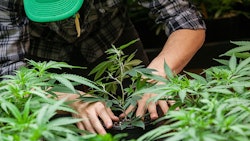AUSTIN, Texas — PRESS RELEASE — State lawmakers should enact legislation this year to legalize and regulate commercial hemp farming in Texas, according to the interim report released this week by the House Committee on Agriculture and Livestock.
"Development of a state hemp industry within the confines of current state and federal law could be beneficial for Texas farmers, the Texas economy, the U.S. economy and the environment," the report reads. It also highlights the recent and expected future growth of the hemp industry and the U.S. market for hemp products, and it details hemp's wide variety of uses and environmental benefits.
The committee unanimously approved hemp legislation last session (House Bill 3587), but it was never scheduled for a vote on the House floor despite broad support from the Texas farming industry, the report notes. The committee was then tasked with studying industrial hemp, evaluating the economic feasibility of developing an industrial hemp market, and offering recommendations for legislation in this year's session.
"This report provides lawmakers with a roadmap to developing a robust hemp program that is fully aligned with federal and state laws," said Shawn Hauser, a Texas native and a leader of the American Hemp Campaign, who provided testimony at the committee's interim hearing in July. She is also a partner and chair of the Hemp and Cannabinoids Practice Group at the Vicente Sederberg law firm, which has guided state and local governments in the development of hemp laws and regulations.
"Hemp would be a profitable new crop for Texas farmers, and it would fuel a promising new industry that creates jobs and other opportunities across several business sectors,” Hauser said. “Thanks to its bountiful agricultural resources and business-friendly environment, Texas is uniquely positioned to become a leader in the U.S. hemp economy.”
The interim report provides several specific recommendations to the legislature, including:
- defining hemp in accordance with federal law, amending the Texas Controlled Substances Act to differentiate hemp from marijuana, and protecting hemp growers and processors from prosecution under state drug laws;
- developing a state hemp program that meets the minimum standards established by the 2018 farm bill; and
- authorizing the Texas Department of Agriculture to establish rules and a regulatory framework for the state's hemp industry.
Other recommendations address testing, establishing a domestic seed certification program and allowing hemp-related research at institutes of higher education.
The report also stresses the need for lawmakers to move quickly, noting that "the window for maximum market capture is narrowing as more than half of the states have already enacted hemp legislation" and further expansion of the industry appears imminent in light of developments in federal law. The 2018 Farm Bill, which was adopted by Congress and signed into law by President Trump last month, included provisions that legalized hemp under federal law and established the framework for a regulated hemp industry in the U.S. It also gives states the option of having primary regulatory authority as long as they meet minimum federal standards.
The move to lift the nation's decades-old ban on hemp farming was backed by a number of federal, state, and local officials, including Texas Agriculture Commissioner Sid Miller.
"The American hemp market is taking off, and Texas would benefit greatly by getting on board," said Eric Steenstra, president and co-founder of Vote Hemp. “States around the country are moving to capitalize on the recent change in federal law, so it is incumbent upon the Legislature to pass comprehensive hemp legislation this session so that Texas does not get left behind. We applaud the committee for recommending sensible legislative solutions that, if implemented, will benefit Texans for generations to come."

























